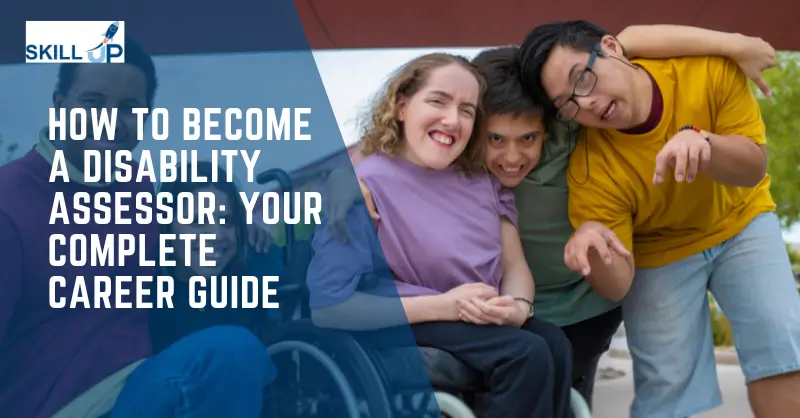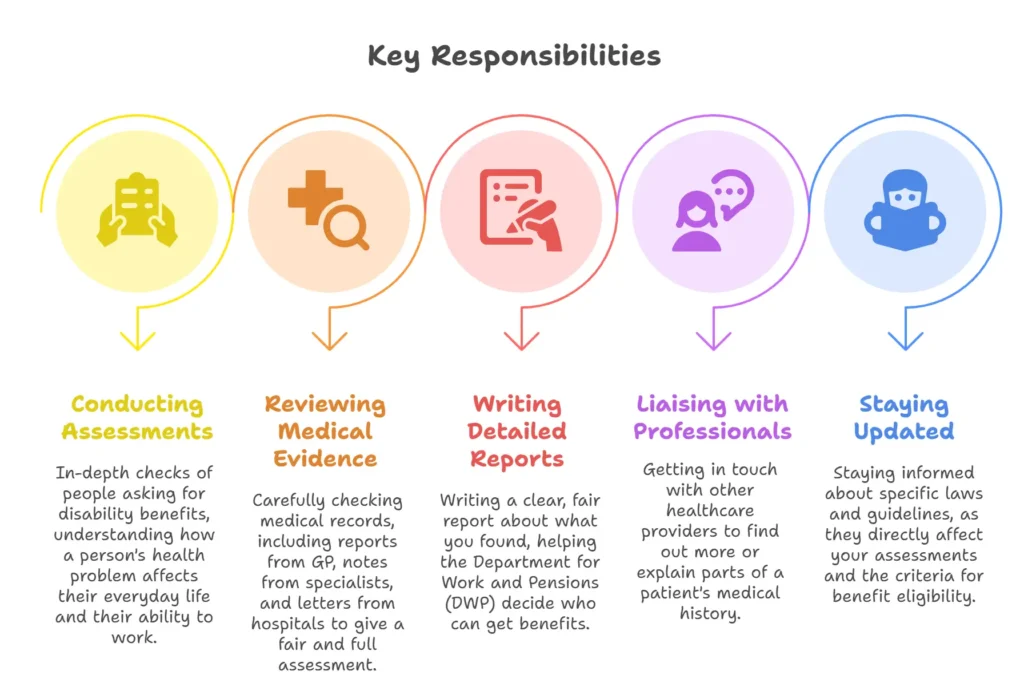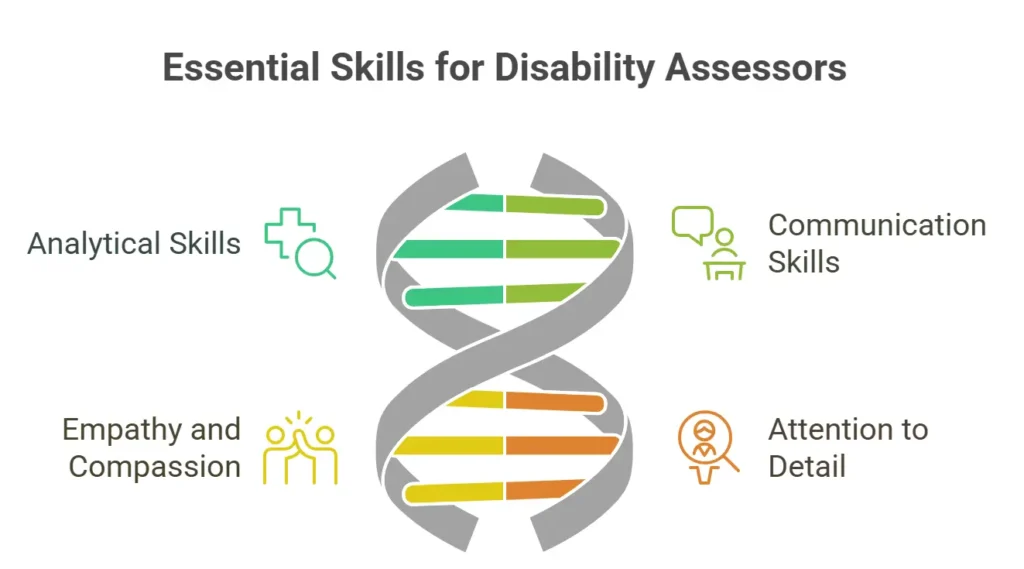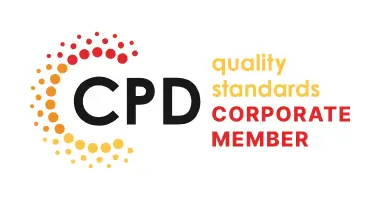
Are you a healthcare professional in the UK seeking a career where your expertise can genuinely transform lives? Look no further than becoming a disability assessor. Since there are more than 14 million disabled people in the UK, there is a greater need than ever for impartial, accurate, and caring evaluations. In addition to competitive starting pay of around £35,000 and stable employment, this role gives the profound fulfilment of ensuring that individuals receive the vital help they require.
This blog post is your complete guide to becoming a disability assessor. We’ll cover everything, including what a disability assessor does, the qualifications you need, important skills, the training involved, and exciting opportunities to progress your career. Ready to embark on a truly impactful career journey? Let’s dive in!
Table of Contents
Understanding the Role of a Disability Assessor
In order to evaluate a person’s health and establish whether they qualify for government disability payments like the Employment and Support Allowance (ESA) or Personal Independence Payment (PIP), a disability assessor is essential in the UK. This function is essential to the social welfare system in the UK because it makes sure that those who actually need help may get it.
Key Responsibilities
– Conducting Assessments: Your main job is to do in-depth checks of people asking for disability benefits. These checks, usually done in person or by phone, aim to understand how a person’s health problem affects their everyday life and their ability to work.
– Reviewing Medical Evidence: A key part of this job is carefully checking medical records. This includes reports from your GP, notes from specialists, and letters from hospitals. You’ll make sure all the important information is looked at to give a fair and full assessment.
– Writing Detailed Reports: After each assessment, you’ll need to write a clear, fair report about what you found. These reports are very important. They help the Department for Work and Pensions (DWP) decide who can get benefits. Your reports must be exact and easy to understand, because they directly affect the help people get.
– Liaising with Healthcare Professionals: To make sure your decisions are accurate and well-informed, you might need to get in touch with other healthcare providers. They can help you find out more or explain parts of a patient’s medical history.
– Staying Updated with Legislation: Disability benefits in the UK are governed by specific laws and guidelines, which are subject to change. Staying informed about these updates is vital, as they directly affect your assessments and the criteria for benefit eligibility.

Day-to-Day Tasks
– Morning Preparation: Your day typically begins by reviewing your schedule of claimants. You’ll prepare by thoroughly going through their medical history and any relevant documents provided by the DWP.
– Conducting Assessments: Throughout the day, you’ll check people’s needs. You’ll ask simple questions to see how their condition changes their ability to do everyday things like cooking, cleaning, personal care, and their power to work.
– Documentation: After each assessment, you’ll write a comprehensive report, documenting your findings immediately to ensure accuracy and detail. These reports are usually submitted electronically to the DWP.
– Follow-Up: If necessary, you might contact healthcare professionals or claimants for additional information, ensuring your reports are as accurate and thorough as possible.
– Continuous Professional Development: To do your job well, you’ll have to keep learning. This means staying current with new medical information, how to assess people, and any changes in the laws for disability benefits.
Steps to Becoming a Disability Assessor in the UK
Becoming a disability assessor in the UK requires a combination of healthcare qualifications, relevant experience, and specialised training. Here’s a comprehensive guide to help you navigate this rewarding career path.
1. Obtain a Relevant Healthcare Qualification
The foundational step is acquiring a professional qualification in a healthcare-related field. This typically includes being a:
– Registered Nurse (Adult, Mental Health, Learning Disabilities)
– Physiotherapist
– Occupational Therapist
– Paramedic
These qualifications provide the essential medical knowledge to understand the complexities of various health conditions.
2. Gain Professional Registration
After earning your qualification, you must be registered with the appropriate UK regulatory body. For example:
– Nursing and Midwifery Council (NMC) for nurses
– Health and Care Professions Council (HCPC) for physiotherapists, occupational therapists, and paramedics
This registration is crucial, ensuring your professional competence and adherence to healthcare standards.
3. Acquire Relevant Experience
Experience in a clinical or healthcare setting is essential. Employers typically seek candidates with at least two years of post-qualification experience. This hands-on experience provides a solid foundation in patient care, which is vital for conducting fair and accurate disability assessments.
4. Develop Key Skills
Certain skills are critical for success as a disability assessor:
– Analytical Skills: The ability to review and interpret complex medical information.
– Communication Skills: Strong verbal and written communication skills are necessary for effective interaction with claimants and for producing clear, concise reports.
– Empathy and Compassion: Understanding the claimant’s perspective and showing empathy is key to conducting fair and respectful assessments.
– Attention to Detail: Precision in reviewing medical records and documenting assessments is paramount.

5. Apply for Disability Assessor Positions
Once you have the right qualifications and work experience, you can start applying for disability assessor jobs. Private companies, like Capita, Atos, and Maximus, often advertise these roles. These companies work with the Department for Work and Pensions (DWP). You can find job listings on general job boards like Indeed or specialised healthcare recruitment websites.
6. Complete Training and Induction
Upon securing a position, you’ll undergo specific, tailored training provided by your employer. This training typically includes:
– Understanding the Assessment Process: Learning how to conduct assessments in accordance with DWP guidelines.
– Report Writing: Comprehensive training on how to write detailed and accurate reports that meet the required standards.
– Legislation and Policy: Gaining in-depth knowledge of the legal framework governing disability benefits in the UK.
Many providers offer dedicated Disability Assessor Training courses, covering essential aspects from assessment techniques to report writing, ensuring you’re fully prepared for the role.
7. Begin Your Role as a Disability Assessor
After completing your training, you’ll commence your role as a disability assessor, conducting assessments, writing reports, and liaising with other healthcare professionals.
8. Ongoing Professional Development
As a healthcare professional, continuous learning is essential. Disability assessors are encouraged to regularly update their knowledge and skills through professional development courses, workshops, and training programmes. Staying current with medical advancements and policy changes will enhance your effectiveness in this crucial role.
Essential Skills for a Successful Disability Assessor
To excel in this profession, a blend of clinical knowledge and interpersonal skills is vital:
1. Medical Knowledge: A strong understanding of various health conditions is essential for accurately assessing their impact on daily life and work capabilities. You’ll also need to interpret complex medical records effectively.
2. Analytical Skills: Critical thinking and meticulous attention to detail are key. You’ll evaluate medical evidence and synthesise information to make informed, precise assessments.
3. Communication Skills: Clear verbal and written communication is crucial. You’ll conduct interviews with claimants and write detailed reports that are easily understood by non-medical professionals.
4. Empathy and Compassion: Building rapport with claimants is vital. Empathy helps you understand their challenges, ensuring your assessments are fair and respectful.
5. Time Management: Efficiently managing your time ensures thorough assessments and timely submission of reports, meeting the demands of the role.
6. Problem-Solving Abilities: Dealing with incomplete details or complicated cases will be common. You’ll need to be adaptable and resourceful to make sound choices.
7. Knowledge of Relevant Legislation: Staying updated on UK disability benefits legislation ensures your assessments are compliant with current laws and guidelines.
8. Interpersonal Skills: Building trust with claimants and collaborating effectively with other professionals is key to a holistic approach.
Training and Certification Options for Disability Assessors
Specialised training programmes are designed to equip you with the essential knowledge and skills for a successful career in disability assessment. Look for courses that offer:
– Comprehensive Curriculum: This covers important topics like how to assess disabilities, using helpful technology, designing things for comfort and efficiency (ergonomics), and writing reports about disability assessments.
– Practical Focus: Learn how to confidently plan and carry out assessments using modern tools and methods. This will help you make sure your evaluations truly show what people need.
– Certification: Once you finish, you’ll usually get a CPD-approved certificate. This certificate is known throughout the industry and will make you look more professional.
– Career Advancement: Our courses open doors to rewarding careers. You’ll be ready for roles like Disability Assessor, Disability Analyst, and Rehabilitation Consultant. In the UK, the annual salary for these jobs typically ranges from £25,000 to £45,000.
– Flexibility: Many online courses offer lifetime access to materials, allowing you to learn at your own pace and fit training around your existing commitments, ideal for busy professionals.
Disability Assessor Jobs: Career Path and Advancement Opportunities
The disability assessment field offers a clear and progressive career path with ample opportunities for specialisation and advancement.
Entry-Level Role: Disability Assessor
– Role Overview: As an entry-level disability assessor, you’ll carry out assessments to work out if people can get disability benefits. This involves reviewing medical evidence, interviewing claimants, and writing detailed reports.
Salary Range: Typically £25,000 – £35,000 per annum.
Advanced Roles and Specialisations
– Senior Disability Assessor
Role Overview: After gaining experience, you can progress to a senior disability assessor position. This position typically involves taking on more challenging tasks, helping to train junior assessors, and possibly managing assessment teams.
Salary Range: £35,000 – £45,000 per annum.
– Disability Analyst
Role Overview: Specialising as a disability analyst involves a deeper focus on analysing data related to disability claims, identifying trends, and contributing to the development of assessment tools and methodologies.
Salary Range: £35,000 – £50,000 per annum.

– Rehabilitation Consultant
Role Overview: Rehabilitation consultants work closely with individuals to create and implement rehabilitation plans. This job needs someone who understands how to assess disabilities well and is also skilled in rehabilitation methods.
Salary Range: £40,000 – £55,000 per annum.
– Disability Employment Advisor
Role Overview: In this role, you’ll work with individuals with disabilities to help them find suitable employment. This involves advising on job accommodations, providing career counselling, and liaising with employers.
Salary Range: £30,000 – £45,000 per annum.
– Case Manager
Role Overview: Case managers coordinate care and support services for individuals with disabilities. This role involves managing multiple cases, ensuring all aspects of a claimant’s needs are addressed.
Salary Range: £35,000 – £50,000 per annum.
– Disability Support Coordinator
Role Overview: This role involves coordinating and overseeing support services for individuals with disabilities, ensuring they receive appropriate care and assistance. It may also involve working closely with community organisations.
Salary Range: £30,000 – £45,000 per annum.
– Disability Policy Officer
Role Overview: As a disability policy officer, you’ll contribute to the development and implementation of policies that affect people with disabilities. This role involves research, advocacy, and working with government bodies or NGOs.
Salary Range: £35,000 – £55,000 per annum.
Further Career Opportunities
As you gain experience and more qualifications, you’ll find chances to move into leadership jobs. For example, you could become a Head of Disability Services or a Director of Rehabilitation Services. In these roles, you’ll be able to help shape your organisation’s plans and rules. These senior positions often command salaries exceeding £60,000 per annum.
Challenges and Rewards of Being a Disability Assessor
Like any profession, being a disability assessor comes with its unique set of challenges and profound rewards.
Challenges
– Emotional Strain: Assessing individuals with significant health issues can be emotionally demanding, requiring resilience while maintaining empathy.
– Complex Cases: Handling cases with multiple, overlapping conditions demands continuous learning and staying updated on a wide range of medical knowledge.
– Balancing Objectivity and Compassion: Striking the right balance between conducting fair, objective assessments and showing genuine compassion for claimants can be challenging.
– Time Management: Dealing with strict deadlines and a large amount of work while still doing a good job needs excellent organisational skills.
– Navigating Regulatory Changes: Keeping up with frequent changes in disability benefits regulations is essential but can be demanding.
Rewards
– Making a Difference: Your work directly impacts people’s lives, providing them with the support they need, which is deeply fulfilling.
– Professional Growth: This position offers opportunities to continually learn, enhancing your medical knowledge and skills in patient assessment.
– Variety in Work: Each case is unique, keeping the job engaging and dynamic, ensuring no two days are the same.
– Building Relationships: Interacting with many different people helps your career grow and improves your understanding of various life situations.
– Job Security and Demand: There’s a growing need for disability assessors across the UK, which means these jobs are highly secure with numerous opportunities for career progression.
Summary
A career as a disability assessor offers the perfect blend of healthcare, public service, and career stability. Whether you’re seeking more meaningful work, flexibility, or a new challenge, this role could be your next big step.
In the UK, working as a disability assessor is a very fulfilling job where you can use your medical expertise to change lives. Millions of people have disabilities, so it’s vital that assessments are accurate, fair, and kind. This job offers great job security, a good starting salary, and the deep satisfaction of helping others get the care they need.
To begin, you’ll need clinical experience, professional registration, specific training, and a valid healthcare certificate. The work involves writing detailed reports, carefully looking at medical evidence, and doing thorough assessments.
While there are challenges, such as handling complex cases and needing emotional strength, the huge benefits of making a difference in people’s lives and ongoing professional growth make this a highly rewarding career. Ready to make a real difference in the UK? Start your journey to becoming a disability assessor today.
FAQs About Becoming a Disability Assessor
A disability assessor is a trained healthcare professional who evaluates individuals’ health conditions to determine their eligibility for government disability benefits, such as Personal Independence Payment (PIP) in the UK.
A disability assessment involves evaluating an individual’s physical or mental health conditions to determine how these affect their daily activities and work capabilities, thereby determining their eligibility for disability benefits.
A Disabled Students’ Allowances (DSA) assessor checks what disabled university students need. They suggest the right help, like special computer tools or extra learning materials.
In a disability assessment, factors like mobility, daily living activities, cognitive functions, and the ability to work are evaluated to determine the impact of a health condition on an individual’s life.
To become a disability assessor, you typically need a healthcare qualification (e.g., nursing, physiotherapy), professional registration, and relevant experience. Additional training specific to disability assessment is also required.
Becoming an assessor usually means you’ll have lessons in a classroom and do real-life tasks. You’ll learn about things like checking for disabilities, writing reports, and understanding the rules and guidelines from the government department (DWP).
To become a DSA assessor, you typically need experience in education, psychology, or a similar area. You also need special training to assess the needs of students with disabilities.
PIP assessors undergo specific training provided by organisations like Capita or Atos, which includes learning about PIP criteria, assessment techniques, report writing, and staying updated on relevant policies and legislation.
Yes, being a disability assessor is considered a good job, particularly if you have a passion for helping others. It offers job security, opportunities for professional growth, and the satisfaction of making a positive impact on people’s lives.
If you have the required training and are dedicated to learning the skills, you can become a handicap assessor, even if it takes the right credentials and experience.
Healthcare professionals that do Personal Independence Payment (PIP) disability assessments to evaluate people’s eligibility for the benefit based on their medical problems and how they impact their mobility and day-to-day living are known as PIP disability assessors.
To become a PIP disability assessor, you need a healthcare qualification, relevant experience, and specific training provided by organisations like Capita or Atos, which are contracted by the Department for Work and Pensions (DWP).
PIP disability assessor interviews typically focus on your medical expertise, understanding of PIP criteria, communication skills, and your ability to professionally and empathetically manage sensitive situations.
A disability nurse assessor is a registered nurse who specialises in assessing the health conditions of individuals to determine their eligibility for disability benefits. This role combines nursing skills with an understanding of disability legislation.










